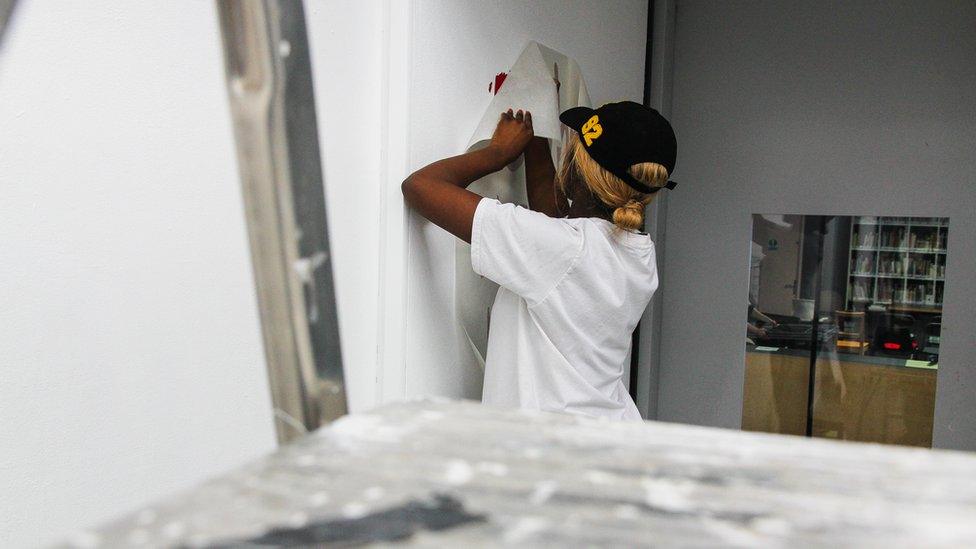Bristol Colston row: A city’s unease with its slave-built history
- Published
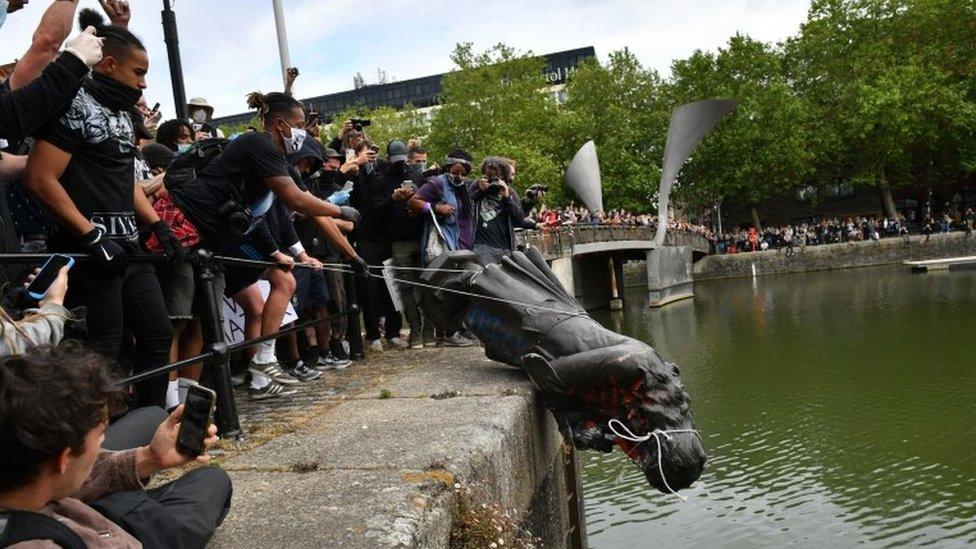
The statue of Edward Colston was lowered into the harbourside after being toppled by protesters
The toppling of the statue of Edward Colston during anti-racism protests at the weekend has focused attention on Bristol's past as a slave port. The modern city portrays itself as progressive and is proud of its cultural diversity. However, many Bristolians still have an uneasy relationship with its past.
The statue of Edward Colston - who made a fortune out of the transatlantic slave trade in the 17th Century - has been a source of controversy in the city for decades.
For much of the city's black population, the symbolic act of pulling it down and throwing it in the harbour was a welcome sight.
Yet while his statue may no longer gaze over Colston Avenue, the legacy of slavery is still visible across much of the city.
Actor Scott Bayliss was born and raised in Bristol. As a child he always felt the Colston statue was paying tribute to a "special man".
"You would pass these statues and you would think that it's positive," he said.
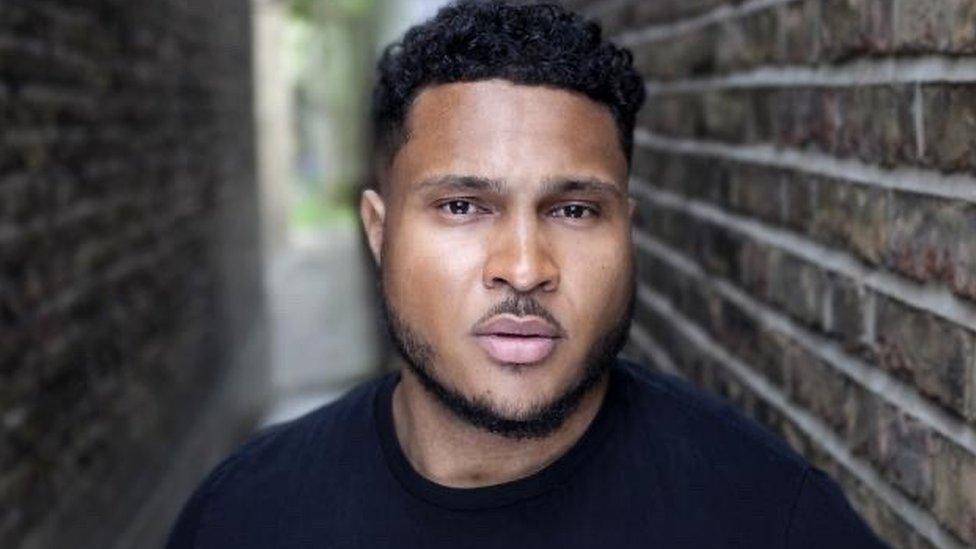
Actor Scott Bayliss believes statues of slave traders celebrate their evil acts
"It's only when you look into these things you realise the negatives, the evil aspect which a lot of England and a lot of the world really has been built on."
Colston was a member of the Royal African Company, which transported about 100,000 men, women and children from Africa to the Americas.
Some 20,000 of them died on the ships and were thrown overboard.
"When people say, is England racist? It's all been built upon racism and it's all been built upon racist acts," he adds.
"It makes me sick that this city that I love is championing and celebrating a man who was responsible for taking 100,000 people from Africa to the Caribbean as slaves, including women and children who were branded with "RAC", the Royal Africa Company, on their chests."
On his death in 1721, Colston bequeathed his wealth to charities in the city. As a result, many of the city's street names and landmarks bear his name.
Colston Hall, an arts venue in the city centre, plans to change its name later this year.
But there are several references to the city's slavery links elsewhere; Exchange Hall, where slaves were bought and sold, and Guinea Street, to name but a few.
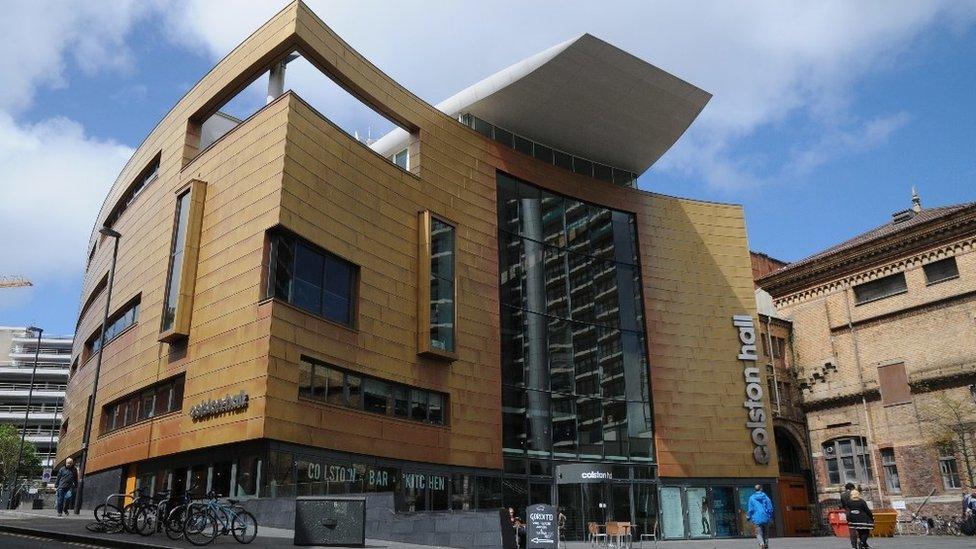
Colston Hall is one of the many places in Bristol named after Edward Colston
Bayliss is calling for all of the UK's street names and places to be renamed as a "commitment to equality" but has become frustrated by the attitude of the various authorities.
"It's so hypocritical - how can it be so terrible when you celebrate slavery with statues?," he says.
Many people in the city believe Colston's legacy should be preserved, however.
In 2018 a petition against efforts to rename Colston Hall attracted 5,000 signatures with its organiser saying it was "time to educate" people about him rather than "eliminate" him from history.
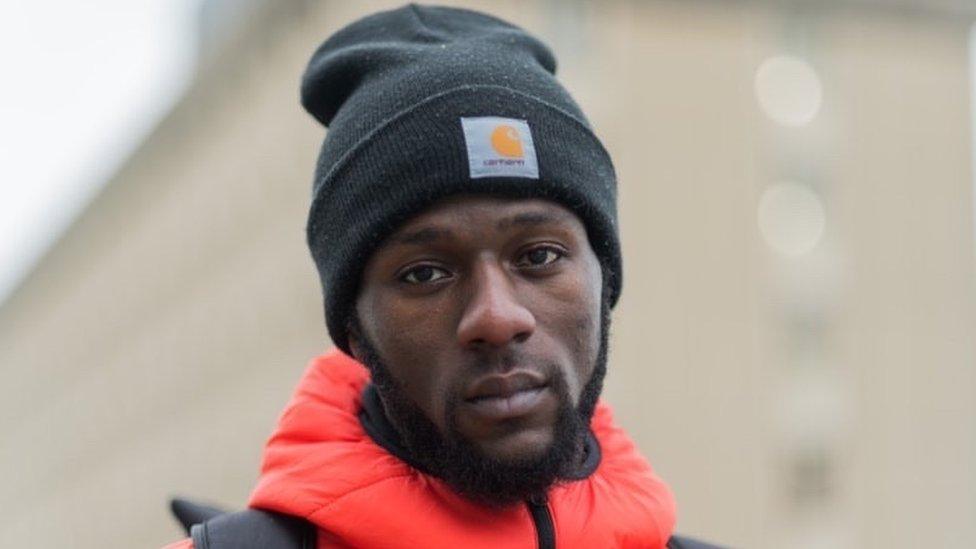
Will Taylor believes Bristol's past should be reflected in its place names
Will Taylor, an arts producer who has lived in Bristol for 10 years, said both sides of Bristol's past should be reflected in its place names and landmarks.
"It's about paying due respect and due diligence to both parties involved in the histories behind people being named as streets and monuments," he said.
He said those objecting to calls for place name changes should consider their motivations.
"I ask those people what their idea of Britain really is? Because if they require those contentious and oppressive memories to remain then my mere existence and the fact that I was born in this country as a black man is an affront to their idea of what it means to be British."
Bristol's population is estimated at about 463,000, with 16% from a black, or minority ethnic group.
The city council says there are now at least 45 religions, external, at least 187 countries of birth represented and at least 91 main languages spoken by people living in Bristol.
Psychology graduate, Saharla Ismail, 23, was born and raised in the city.
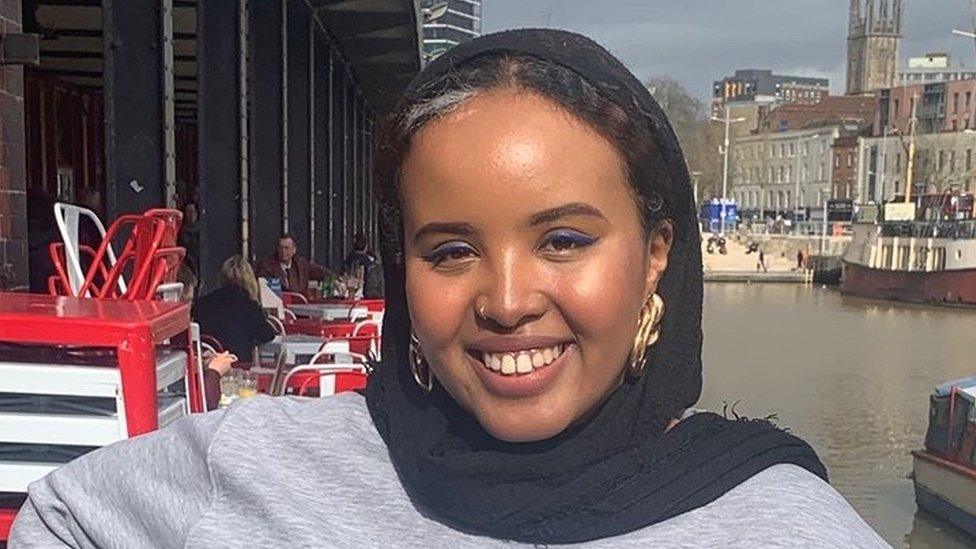
Saharla Ismail believes place names linked to slavery should all be changed
"Bristol does pride itself on being an inclusive city, a green city and all of these amazing things," she said.
"But all of those things elude meaning when you have slave traders' names placed everywhere - roads, statues.
"It empties meaning of Bristol being an open and safe space for everyone.
"Bristol is a segregated city, just look at different areas of how class and race intersect with each other.
"A lot more needs to be done to support black people and other people of colour," she added.
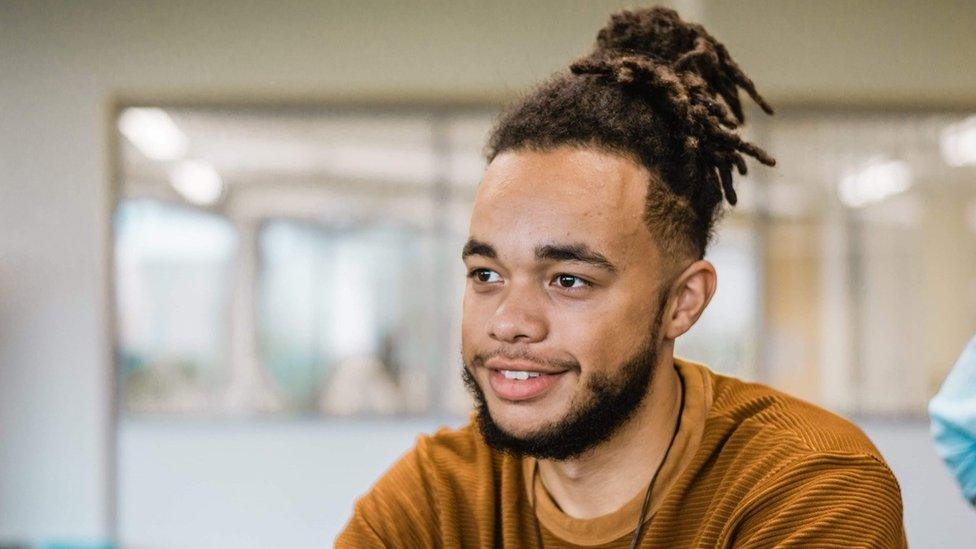
Local historian Tayo Lewin-Turner is happy the statue was toppled
Caine Tayo Lewin-Turner, a 20-year-old history student from the city, said he wanted the school curriculum to be changed to reflect black history.
"I'm happy this symbol of white supremacy has been toppled as Colston was responsible for misery causing tens of thousands of deaths," he said.
"There is so much more to do and I hope the way we confront the legacy is more democratic with a black-led focus."
- Published8 June 2020
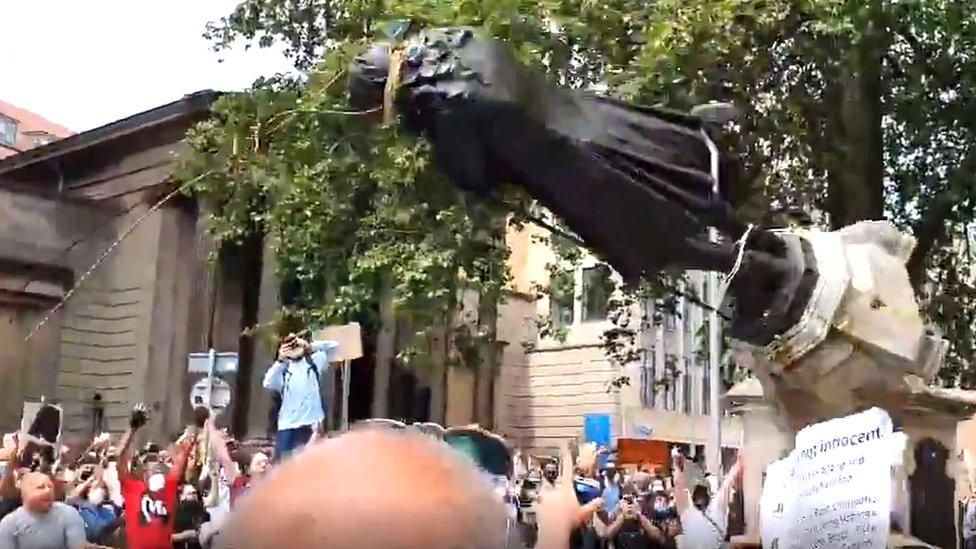
- Published8 June 2020
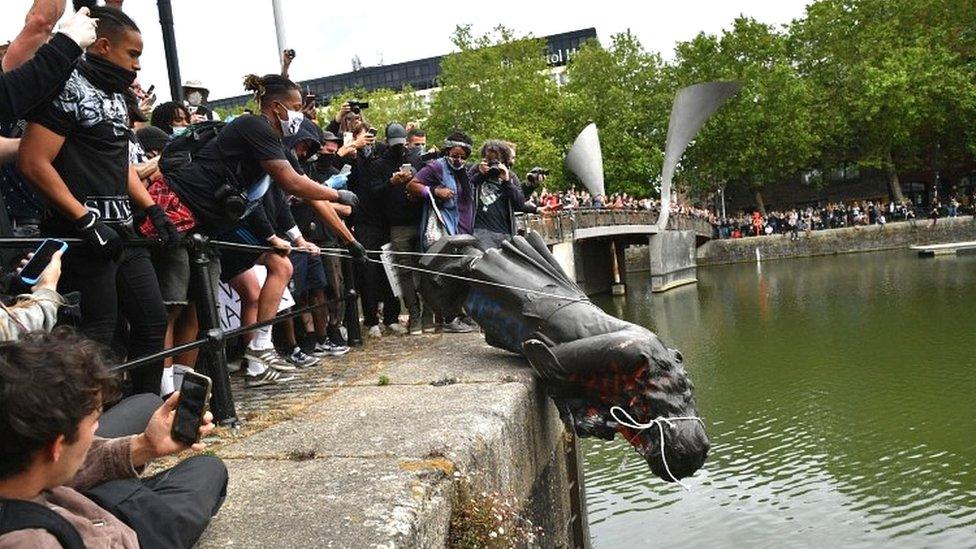
- Published8 June 2020
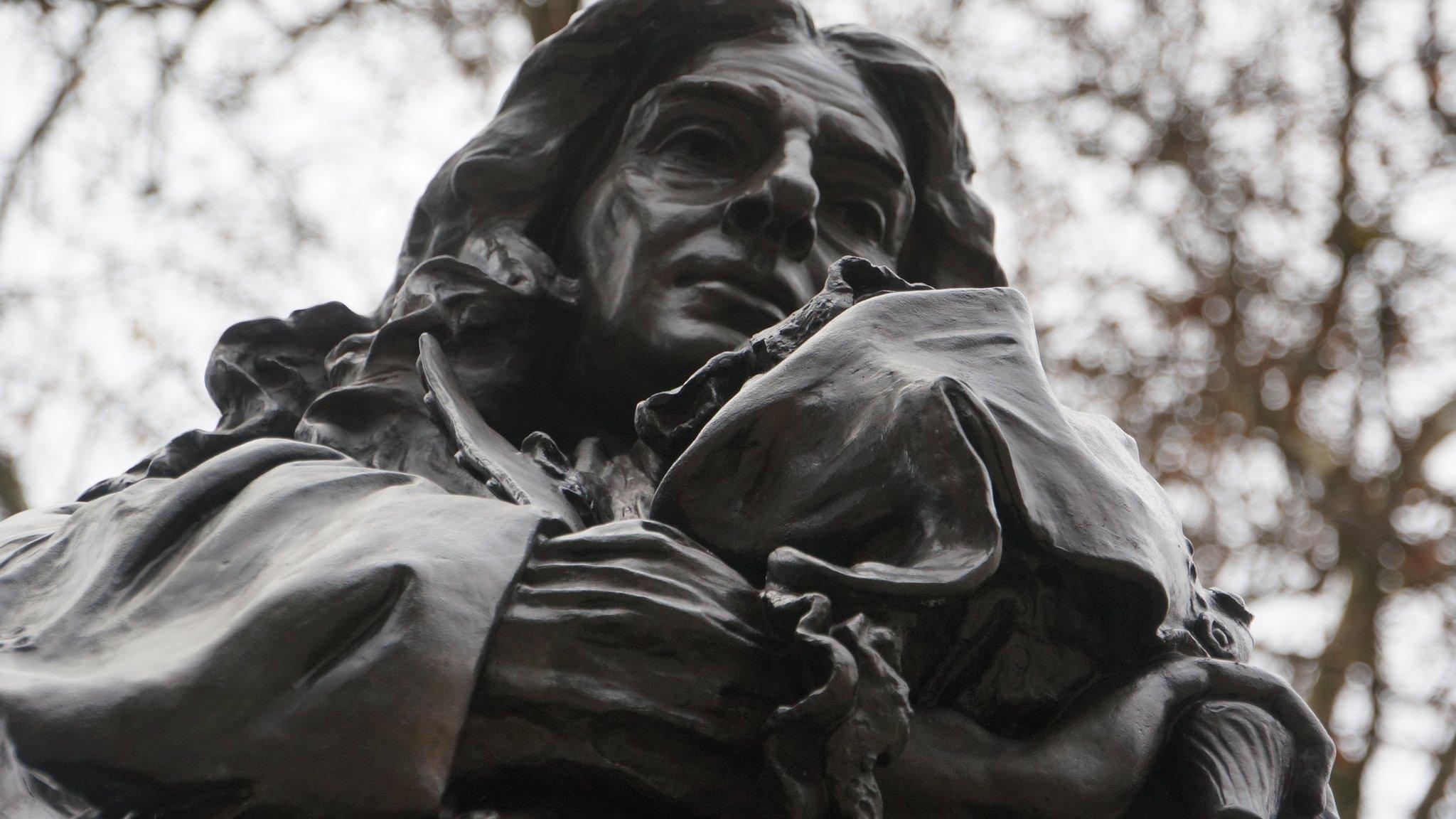
- Published3 May 2019
